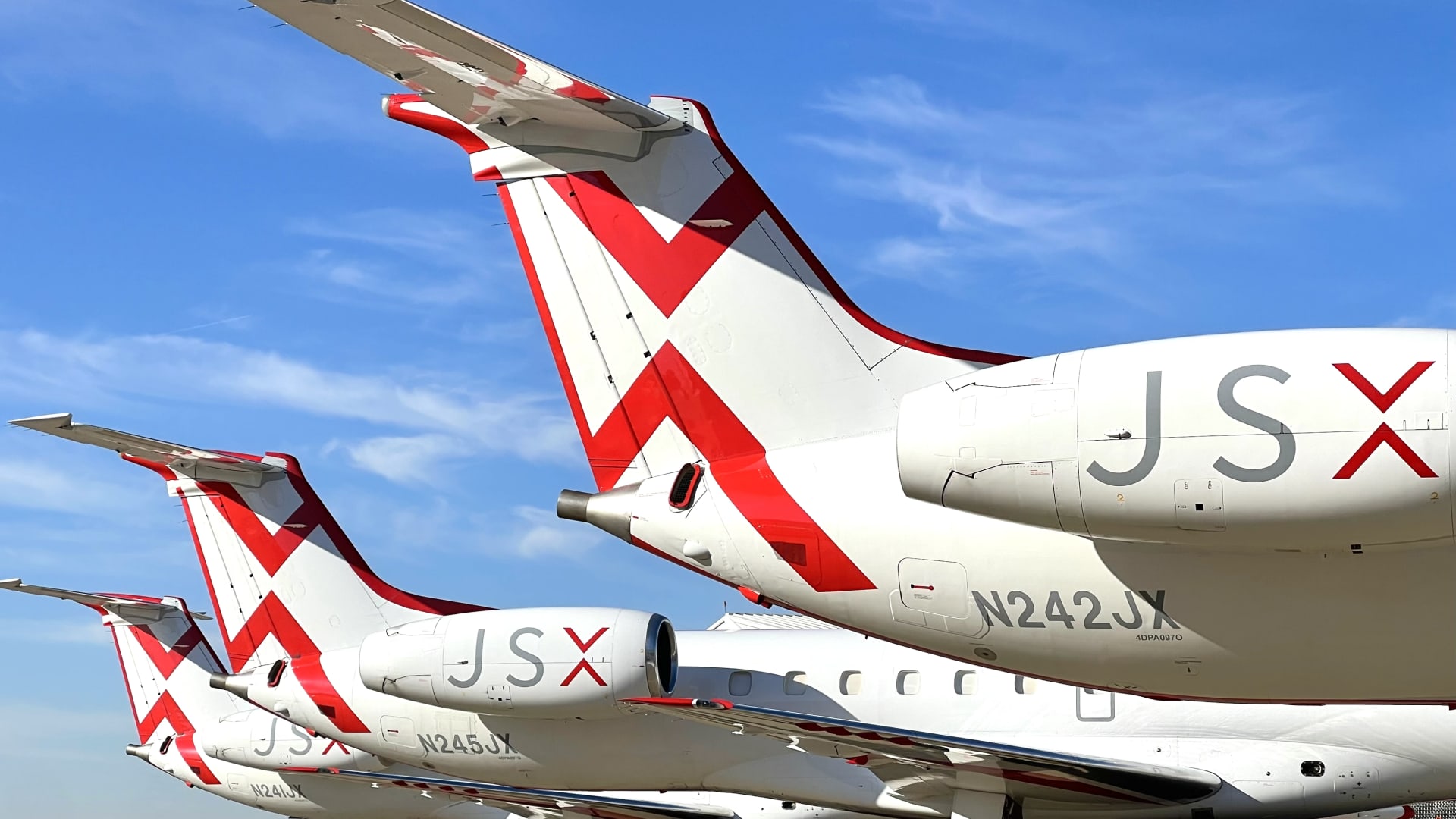SpaceX signed its first deal to add Starlink satellite internet to an air carrier’s fleet of planes with semi-private charter JSX, as Elon Musk’s company moves into the in-flight Wi-Fi market.
CEO Alex Wilcox told CNBC on Thursday that the agreement with SpaceX covers service on up to 100 airplanes. JSX has 77 30-seat Embraer jets in its fleet currently.
“We’ll be the first to have it on an airplane,” Wilcox said. The co-founder of JSX, Wilcox was the former head of product development at JetBlue Airways.
SpaceX’s Starlink service on JSX flights is pending regulatory approval, but Wilcox said he expects it to be available by the fourth quarter of this year, if not earlier. Currently a Starlink aircraft antenna is installed on one of the JSX airplanes for testing.
“The SpaceX engineers are unbelievable,” Wilcox said.
Wilcox declined to provide financial details about JSX’s contract with SpaceX. He noted that JSX will provide Starlink service to passengers free of charge, with no login screens required to access the network.
Starlink on JSX “will be just like home, only faster,” Wilcox added.
In-flight connectivity is a market that SpaceX has talked about disrupting since the company began offering its satellite internet service, with Starlink vice president Jonathan Hofeller recently emphasizing that the the aviation Wi-Fi market “is ripe for an overhaul.”
SpaceX began testing an aviation-specific version of its Starlink antenna, or terminal, more than a year ago. To date, SpaceX has launched about 2,000 Starlink satellites to support its global network.
The company has about 250,000 total Starlink subscribers so far, a number which includes both consumers and enterprise customers. Starlink users pay $110 a month for the standard service and $500 a month for the premium tier.
